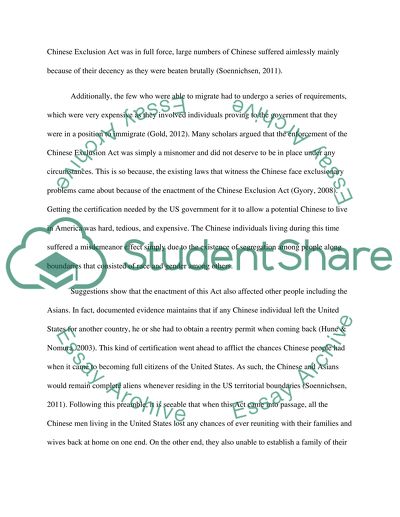Cite this document
(“Chinese Exclusion Act Research Paper Example | Topics and Well Written Essays - 1750 words”, n.d.)
Retrieved from https://studentshare.org/history/1467922-chinese-exclusion-act
Retrieved from https://studentshare.org/history/1467922-chinese-exclusion-act
(Chinese Exclusion Act Research Paper Example | Topics and Well Written Essays - 1750 Words)
https://studentshare.org/history/1467922-chinese-exclusion-act.
https://studentshare.org/history/1467922-chinese-exclusion-act.
“Chinese Exclusion Act Research Paper Example | Topics and Well Written Essays - 1750 Words”, n.d. https://studentshare.org/history/1467922-chinese-exclusion-act.


